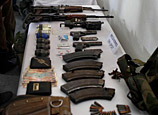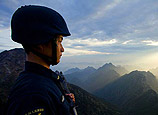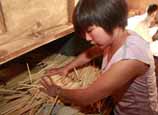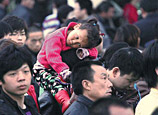
BEIJING, March 19 (Xinhua) -- As U.S. President Barack Obama arrived in the Middle East Tuesday, he is presented with an opportunity to reflect on and re-adjust his country's overall diplomacy.
During his first term, Obama, upholding the banner of "Asia pivot," invested much of attention and a great number of resources in the Asia-Pacific region.
Washington, in the past few years, strengthened military alliance with a few Asian nations and announced a plan to shift 60 percent of its fleet to the Asia-Pacific region by 2020.
These policies have done nothing to improve stability in the region.
On the contrary, they emboldened a few of its Asian allies to be more assertive in territorial disputes with China and triggered speculation from Chinese experts that an "Asia pivoting" Washington actually takes aim at China, creating strategic mistrust between the world's two largest economies.
Meanwhile, the Obama administration's strategic rebalancing towards Asia is at the expense of its input in the Middle East, probably the most politically volatile patch of land on earth.
Peace talks between Israel and the Palestinians are in stagnation and there are no new plans to bring the two parties back to the negotiating table, while the crisis of Syria, which had just passed its two-year anniversary, saw no signs of improvement.
Besides, the prolonged nuclear issue of Iran worried more and more regional countries.
The oil-rich and politically-turbulent Middle East is of great significance to the world, whose peace and stability affects people living in almost every corner of the earth, including the United States.
Washington cannot afford to overlook the Middle East especially after the region saw overthrown of several long-time rulers and is filled with uncertainties, and needs more than ever the helping hands from a responsible and constructive super power.
On economy, the United States became more reliant on the Middle East for its oil imports last year, according to data from the U.S. energy department. When there is instability and insecurity in the oil-rich region, it would likely drive up oil prices and raise costs of business of the world's largest economy.
On security, the United States has been a victim of terrorists and Islamist extremists resulted largely from conflicts and turbulence of the Middle East.
These attacks revealed deep mistrust between the United State and the region.
Only by holding genuine concern for the well-being of the region's peoples and playing an active and constructive role in solving the regional issues, can Washington uproot the mistrust and restore credibility in the Middle East.
Meanwhile, development and economic prosperity, rather than any other factors, are keys to solve the problems of the Middle East.
As permanent members of the UN Security Council and world's two largest economies, the United States and China could join hands in safeguarding peace and stability and increasing trade and investment in the Middle East.
















 Central China tornado kills 3
Central China tornado kills 3
Injuries rises to 52


![]()
